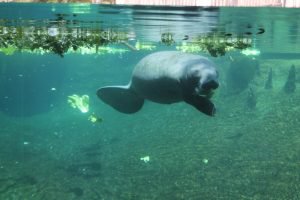The Purpose of Ecotourism
January 19, 2022

Most tourism in natural areas today does not fall under the category of ecotourism and is not, therefore, sustainable. Ecotourism is set apart by its emphasis on conservation, education, traveler responsibility and active community participation.
With the many advances in transportation and information technology, even the most remote places on our earth are within reach of the traveler. In fact, tourism is now the world’s largest industry, with nature tourism representing the fastest growing segment. People express a desire to experience nature and the world, but should make every attempt to do so in a way that does not negatively impact the natural environment.
The World Conservation Union (IUCN) defines ecotourism as, “Environmentally responsible travel to natural areas, in order to enjoy and appreciate nature (and accompanying cultural features, both past and present) that promote conservation, have a low visitor impact and provide for beneficially active socio-economic involvement of local peoples.”
Ecotourism generally possesses the following characteristics:
- Conscientious, low-impact visitor behavior
- Sensitivity towards, and appreciation of, local cultures and biodiversity
- Support for local conservation efforts
- Sustainable benefits to local communities
- Local participation in decision-making
- Educational components for both the traveler and local communities
Increased tourism to sensitive natural areas without appropriate planning and management can threaten the integrity of ecosystems and local cultures. An increase of visitors to sensitive natural areas can lead to substantial environmental degradation. Local communities and indigenous cultures can also be harmed by a large influx of visitors. Ecotourism offers an opportunity for an increase in education and activism among travelers, making them more effective supporters of conservation.
Manatee Eco Tours in Naples Florida
November 30, 2021

Florida’s state marine mammal, the Florida manatee, is related to the elephant. These grayish brown gentle animals use their front flippers to steer and their flat tails to help them move forward through the water. Manatees playing an extremely important part with regard to plant growth in shallow rivers, estuaries, bays and coastal waters where they live. Getting up close enough to see them is a special treat for visitors to the Sunshine state, as well as residents.
Manatees are herbivores and mostly feed on sea grasses and freshwater plants. They can be found in warmer waters and are rarely found in waters under 68 degrees Fahrenheit. Manatees live in Florida’s coastal waters during the winter season, though some migrate as far north as the Carolinas or as far west as Louisiana during the summer months. During the last few years, some manatees have been spotted as far north as Massachusetts.
Manatees are well known for their slow-cruising, gentle nature and have also been known to body surf when they are feeling a bit playful. They communicate through the use of squealing sounds under water, to convey feelings of excitement or fear. Baby manatees are born weighing approximately 60 to 70 pounds and measuring 3 to 4 feet in length and they nurse underwater.
When in the Naples, Florida area, taking a manatee sightseeing eco tour is a great way to enjoy a close view of Florida wildlife. Manatee Eco-Tours out of Naples is the only sightseeing tour company in the world that offers and stands by it’s NO SEE-NO PAY guarantee. We offer an informative 90-minute tour that will allow you to see manatees in their natural habitat. It is very likely to also see other types of wildlife, such as alligators, egrets, dolphins, sea turtles and other animals that are indigenous to the area during the tours. The tours take you and your group to the Faka Union Canal, which is part of the Port of the islands and the 10,000 islands.
Benefits of Ecotourism
November 17, 2021

Ecotourism encourages tourism in stunning natural areas, can create jobs and income without destroying or harming natural or cultural assets that the visitors have arrived to explore and, like no other industry, ecotourism gives natural unspoiled areas an economic value. These efforts all go hand in hand with actively creating benefits for nature conservation and focusing on reducing environmental impacts.
Ecotourism experiences also tend to be cutting edge with regard to creativity within the tourism industry, and can be readily marketed to an ever increasing number of people who wish to ensure that their vacations create positive benefits, both for the environment and local communities, while providing them with education and fun.
Naples on the west coast of Florida ranks high amongst the best places to visit in the sunshine state and manatee eco tours are high on the list things that should not be missed as far as Florida tourist attractions. Manatee tours offered by Manatee Eco-Tours include a boat tour with a close-up view of Florida wildlife. Whether you are a wildlife photography enthusiast or simply a tourist looking for a wonderful adventure tour, Manatee Eco-Tours will exceed your expectations.
Known for its pristine white sand beaches, Naples is paradise for natural wildlife and home to some of the most diverse and unique ecosystems in the nation. Aside from alligators, a wide variety of birds and large fish, and other kinds of aquatic life that are common to Naples, manatees are a Florida treasure.
Also known as sea cows, these gentle giants are typically found in shallow, slow-moving rivers, bays, estuaries and coastal water ecosystems along the southeastern United States. They can live in fresh, brackish, or salt water. Manatees prefer waters that are approximately three to seven feet in depth, however, along the coast, manatees tend to travel in waters that are about 10 – 16 feet in depth. The warm waters around Naples provide manatees with safe living and breeding areas, the warm water they prefer, and a steady and easy to access food supply.